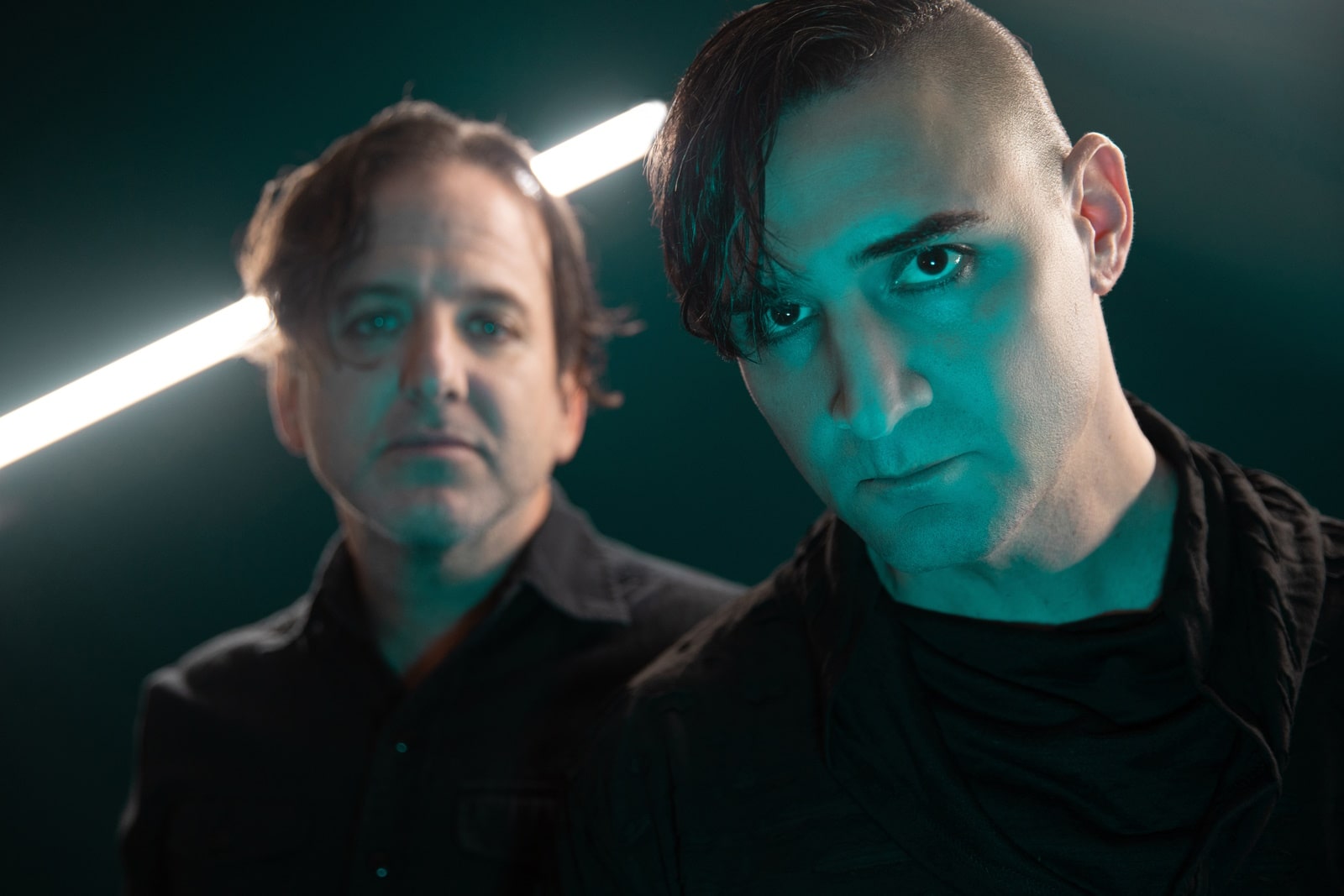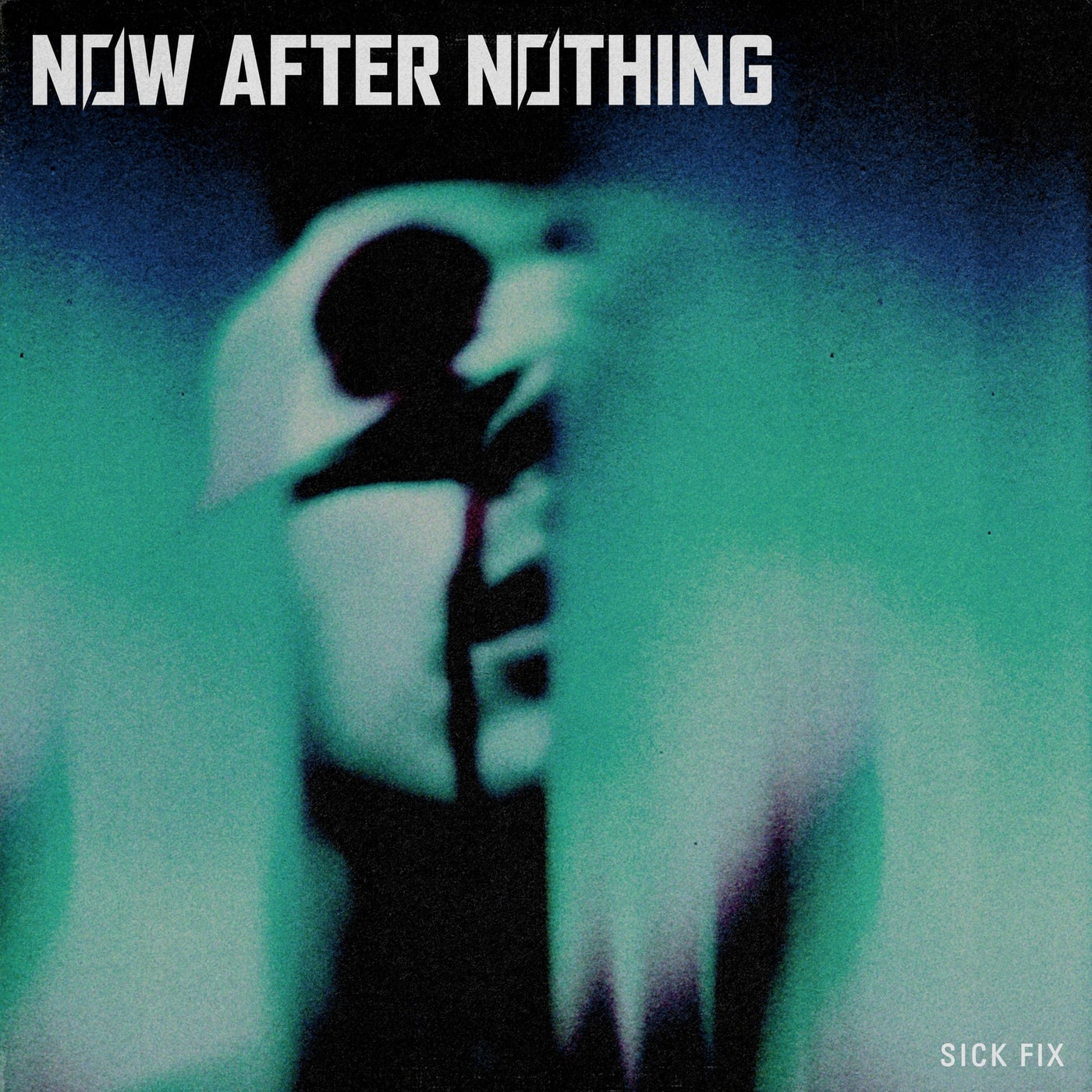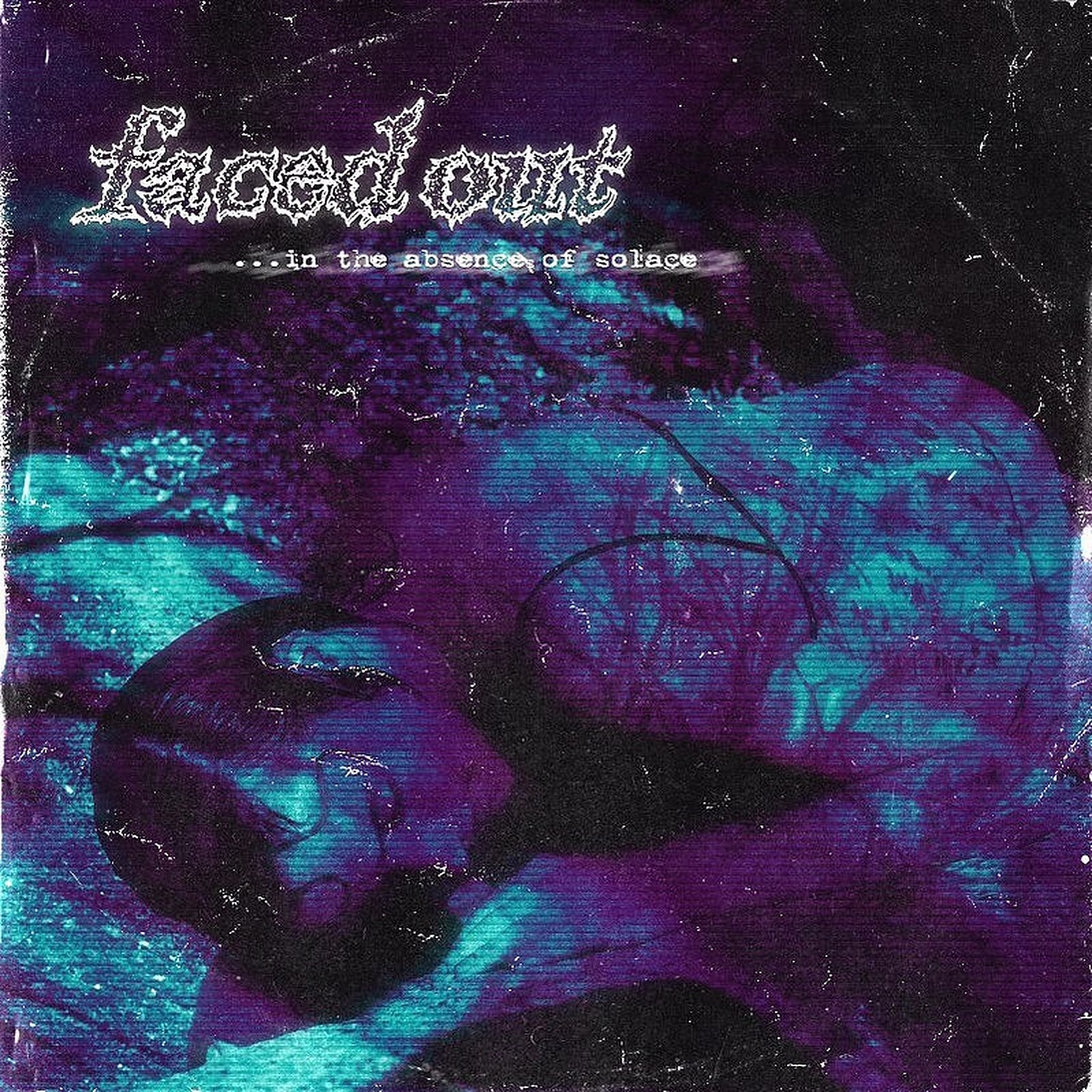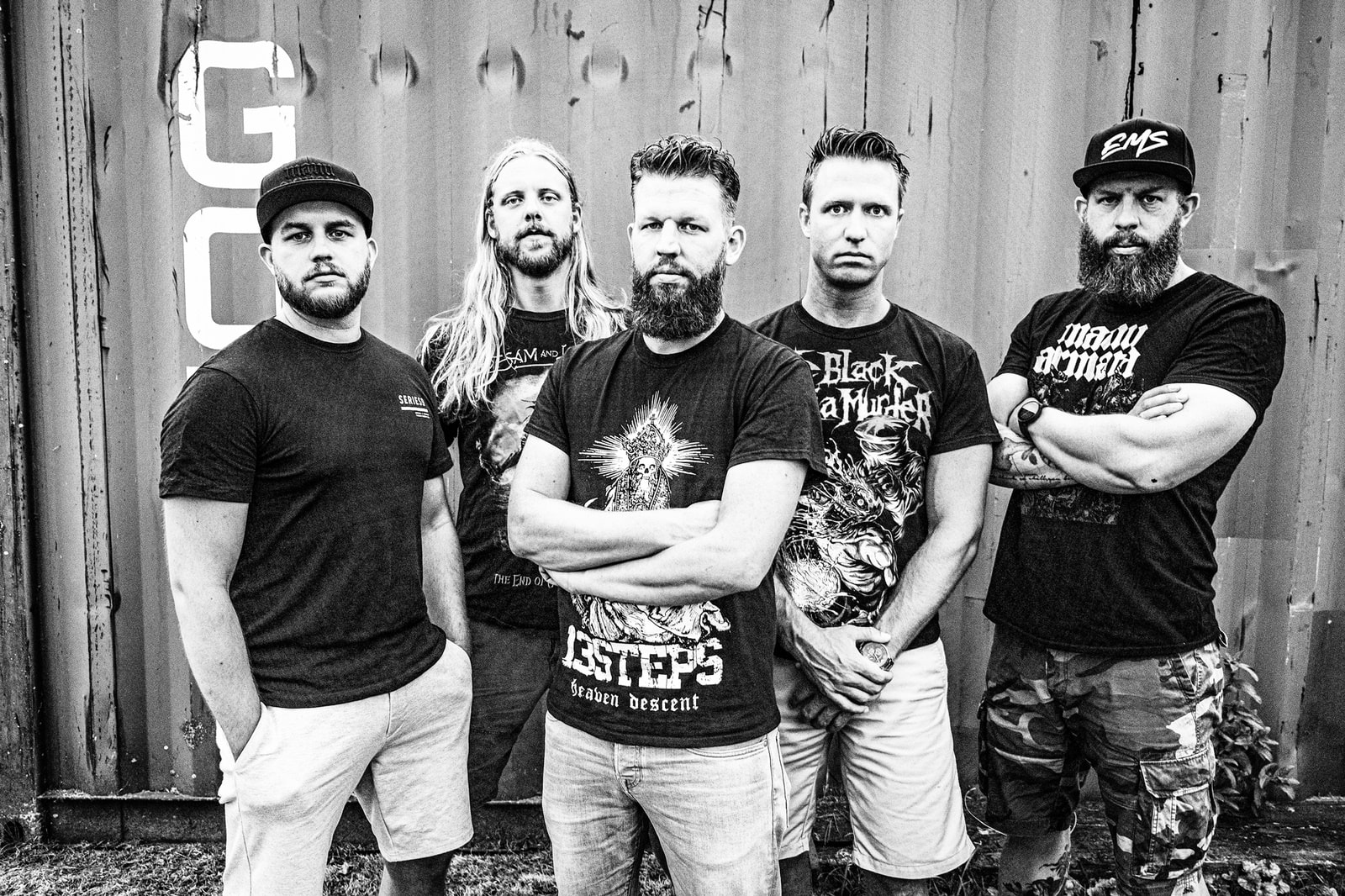Today darkwave duo NOW AFTER NOTHING release their dynamic debut single “Sick Fix” as frontman Matt Spatial and drummer Michael Allen unveil their new project. The track, mixed by Carl Glanville (U2, Joan Jett) and mastered by John Davis (Placebo, JAMC, Suede) features pounding bass and rhythmic opening beats that nod to the band’s Sonic Youth and Bauhaus influences. Subsequently, the nuanced electronic and punk elements round out Now After Nothing’s distinct, modern take on darkwave.
To celebrate the release of the new single, we have teamed up with vocalist Matt Spatial to give you a special first-hand commentary and his essay, in which he discusses his identity and experiences around goth music, his recollections of goth entering the mainstream in the 90s, and the current iterations of mainstream goth culture and music. Check out the full text after a scroll.
In their debut single, “Sick Fix”, the sensual instrumentals, featuring additional guitars by guest musician Mark Gemini Thwaite (Peter Murphy, The Mission UK), are met with cryptic lyrics inspired by hypocrisy and unhealthy relationships. The monumental track, worthy of darkness-laden late-night dance floors, sets the bar for more new music on the way in 2023.
For fans of: Bauhaus, The Cure, My Bloody Valentine, and Sonic Youth
Spatial’s devotion to music was revived during the making of this track, which undeniably shows in the band’s intensity and attention to detail: “I was at one of the lowest points of my life and without a musical outlet. I was damaged, defeated, and deflated. One day in New York City, riding through Central Park with earbuds in place, I rediscovered a band that didn’t initially resonate with me. Hearing them this time was different though – I felt the spark. That emotional connection to a newly-discovered piece of music was the proverbial kick-in-the-ass I needed to ‘crawl out of cracks below.’ When I arrived home, I dusted off my studio gear and opened up files of previously unfinished song ideas, one of which was a rather bare recording of just a single bass line. It caught my ear and by the day’s end, Sick Fix was complete from start to finish. Listening back to it, I felt alive again. I felt the same spark I had felt that day in Central Park that inspired me and reminded me I had more music inside of me. I wasn’t going to let myself wither away. Though the band name came later, Now After Nothing was really born on that day, which is why Sick Fix undoubtedly needed to be our first single.”
Atlanta-based darkwave act Now After Nothing is bringing classic influences and modernized electronic instrumentals to the present-day crowd. Frontman and multi-instrumentalist Matt Spatial brings masterful expertise to the expansive project and it’s evident in the dynamic collection of tracks that cover a vast selection of genres from punk to industrial and new wave.
The influences from Bauhaus, The Cure, My Bloody Valentine, and Sonic Youth shine as he seamlessly enmeshes the best parts of those artists into a new iteration of seductive, introspective, and mesmerizing goth tracks for the next generation. Spatial intricately weaves social, political, and personal narratives within the instrumentals to add depth and darkness that resonates with lost and misunderstood souls.
What originated as a solo idea is now skyrocketing into a full-fledged project coming to fruition. Now After Nothing is poised to announce a new EP on the way that was fully written and recorded by Matt Spatial alongside drummer Michael Allen. They are also gearing up for their first upcoming live performances in 2023.
Reflections on goth identity, goth music & culture, by Matt Spatial
I was on my way to band practice when I stopped at a nearby gas station. I had all of five dollars to my name so I bought my dinner – a drink and some chips – and the remaining change would go to pump #3 with the hope that it was enough to keep my car running until payday. I was nineteen years old and in my sophomore year of college so money was tight, to say the least.
The gas station attendant, a mid-50’s pudgy male in a pair of overalls, a checked shirt, and a southern drawl began to ring me up but paused to say, “you have on black nail polish.” His tone wasn’t aggressive though it had just enough stench for me to smell it for the critique that it was. I half-smirked, remembering I also had last night’s eyeliner smudged on my face and just casually replied, “yeah, I’m in a goth band,” as if to nonchalantly imply it was just ‘part of the job’ in effort to avoid any further discussion with someone who was appearing more close-minded by the millisecond. “Well, you wouldn’t see me in a goth band,” he muttered with a half-disgusted/half-blank expression, the latter half of which also conveyed that he should have prefaced his statement with, “I don’t even know what a ‘goth’ band is but…” I just shrugged, grabbed my drink, and headed for the door before turning around to pompously add, “well, you wouldn’t see me working at a gas station.” I wasn’t usually one to go for the bait, but it seemed an appropriate response. After all, Bauhaus double-dared me to be proud, had they not?
Clearly, this incident was before goth culture had flooded the mainstream (or at least the gas station attendant social circles). But first let’s be clear:
- I’m not goth. The term has been misused and abused for so long that I don’t even know what it means any more – at least not to the layman.
- For one to actually be goth (as most appropriately defined prior to the term’s misuse and abuse,) one would rarely, if ever, refer to themselves as goth. So even if I were goth, would I even say it? (It’s enough to make your head spin, right?)
So, let’s just say this: I cut my musical teeth when my older bandmates gave me my first taste of bands like Bauhaus, The Sisters of Mercy, Siouxie and the Banshees, and Joy Division and I was all-in from there. I studied everything about these bands, among others. I meticulously sifted through the Cleopatra and Projekt Records rosters listening for hidden gems. I traveled to city after city for more shows by Switchblade Symphony than I can even remember. I’ve been fortunate enough to share many stages with bands such as The Genitorturers, The Awakening, and The Electric Hellfire Club. I fully embraced the culture of goth as a way of life. Best of all was that it was filled with all of the other misfits, freaks, and outcasts that, like myself, often felt trapped in a mainstream world before finding our true selves.
Then it happened. As if overnight, it seemed mainstream bands became tirelessly (and wrongfully) brandished with the “goth” label, yet somehow by the least goth-sounding bands you’d ever hear. Some band that sounds more like California Pop-Punk put on thick, black eyeliner and matching pseudo-Victorian garb (that usually looked more like discards from a costume shop) were now calling themselves “goth”? My cohort and I were dumbfounded. Then it seemed every mall in suburban America had a Hot Topic pushing out a new bastardized goth-monkey-suit (faux-bondage pants and a leather choker) to every kid that was trying to figure out what to do with last year’s flannel.
To be fair, the goths didn’t own the patent on any of the visual or fashion elements. Alice Cooper donned the heavy eye makeup and fetish-style black corset around his chest just narrowly before artists like Siouxie, The Misfits, and The Damned would set a future course for the post-punk sound shortly thereafter. And that’s what was always (and will always be) key – the sound. Those driving bass lines, the reverbed guitars, and the deep, deadpan vocals all mixed up with a dash of creepy. Of course, the sound has evolved and grown over time, but it’s the goth sound that we came to cherish and still hold as the most important element. It’s the true defining characteristic of goth, which is why hearing a pop-punk band being labeled as “goth” was (and always will be) so disturbing.
But isn’t that just the unfortunate way of things? Corporate conglomerates take a bite out of an underground subculture that has “commercial potential,” chew it up, add a geyser’s worth of water to it, then regurgitate it out to the masses via fire hose. It really seemed to hit the late 90’s-early 00’s the hardest, but does continue to this day in occasional waves.
I’m not that same nineteen-year-old kid anymore though who was terrified of my community being overrun with your otherwise stereotypical frat boy and sorority girl. Perhaps more importantly, the mainstream penetration of goth culture these days seems to have more authenticity to it than it once did. Take Netflix’s “Wednesday” – it’s not a girl in black Victorian-era ruffles and black(er) eye makeup imitating the sights of a goth club dance floor to the sounds of an early 00’s sonic disaster. Rather, it’s Jenna Ortega delivering an unfettered portrayal of the titular character to an actual Cramps’ song. The show delivers form over fashionable (broadly speaking) in the now well-known dance scene. It actually makes me smile (…err, it makes me smile on the inside while looking stoic and unhappy on the outside) and warms whatever is left of the nineteen-year-old me’s cold, gothic little heart.
Maybe when the mainstream grabs hold of goth culture it can actually be enjoyable if done so with authenticity. Maybe it’s that I care less the older I get or that it’s become so common in the mainstream for so long now that I’m not as quick to get annoyed or feel personally attacked as I would at nineteen. Either way, I can take it for what it is now or choose to ignore it if I want. And when done with care , I can open my arms wide and kiss them for Siouxie Sioux (for she’s informed me she may be delayed). But regardless, the mainstream will likely never be done sticking their toe in the blood-filled goth pool. Who knows, if I saw that same gas station attendant today, though he may not have ever heard the calling to start his own goth band, there’s a good chance he’s hiding black fetish-wear and black(er) toe nail polish underneath his boots and overalls today! OK, probably not, but I bet he has given his grandkids’ a similarly disgusted look at some point upon seeing them with their own black nail polish on. Only now his look doesn’t convey the same preface, “I don’t even know what a goth band is…”











